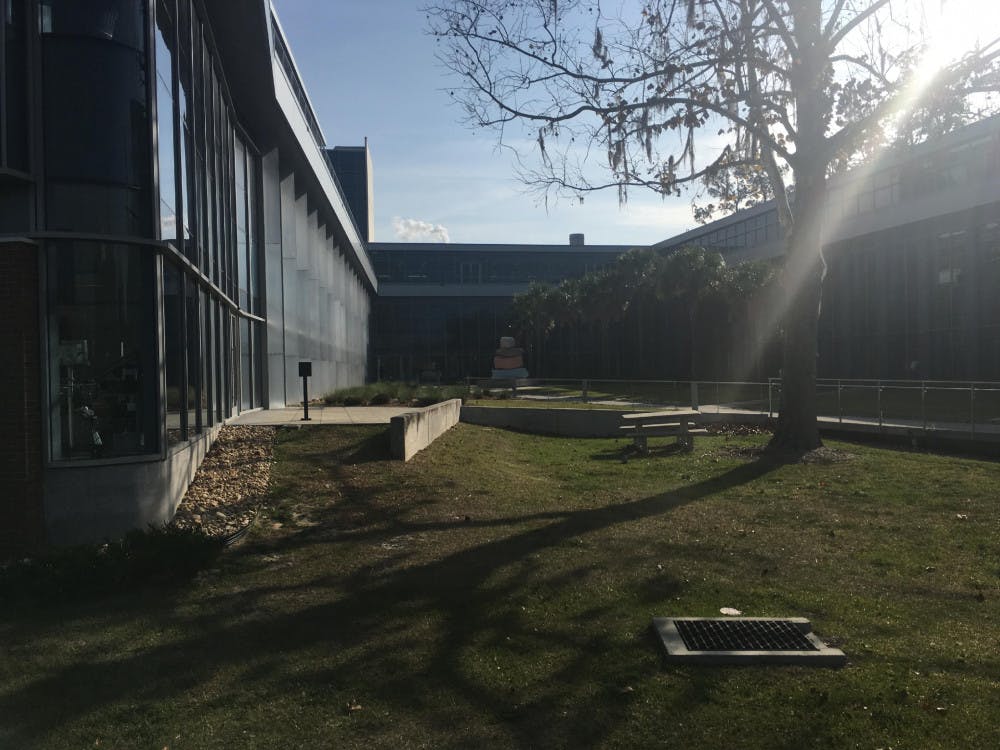As the sustainability movement gains traction, the medical field is looking toward implementing earth-conscious practices.
However, implementing sustainability in the medical world can have many obstacles that facilities like UF Health Shands Hospital are working to overcome.
“The hospital is a really challenging institution,” said Liz Storn, a program coordinator for the UF Office of Sustainability. “Largely because they are very separate in a lot of ways.”
Storn said there are physical barriers, such as no separate recycling chutes and contract barriers regarding who can do what.
Some physicians think that sustainability and medical care are linked.
Dr. Lauren Berkow, a UF associate professor and director of anesthesia supplies and equipment, joined Shands’ Department of Anesthesiology last summer.
Before joining UF, Berkow worked at Johns Hopkins University for 16 years, where one of her many roles involved focusing on sustainability.
Berkow said when she got to Shands, she wanted to explore the hospital’s environmentally conscious efforts.
“I discovered there wasn’t really a sustainability committee in the hospital, and that there really wasn’t any unified group that was working on it,” she said.
From there, she worked to understand the complex hospital waste stream and make an effort to start a unified group committed to sustainability at Shands.
“Surprisingly, we got a lot of people interested,” Berkow said.
The working group has met once a month since November and has members from various levels across the hospital, campus, city and county.
Berkow said hospitals are a unique environment for implementing sustainability because they use more energy than most commercial entities, run 24/7 and are responsible for about 10 percent of greenhouse gas emissions.
She said most medical school curriculum and residency trainings do not educate clinicians on how to implement sustainability in their practice.
Dr. Alice Rhoton-Vlasak, a UF associate professor of women’s health and obstetrics and gynecology, has been on faculty for about 18 years as a reproductive medicine specialist.
She said one obstacle is convincing people in charge that such practices are valuable by gathering more evidence.
“If you can’t live a sustainable life yourself, how can you watch out for Earth, our plants and animals and all the things that depend on us to be good stewards?” she said. “We owe it to the world around us.”
UF’s Clinical and Translational Research Building has achieved LEED certification, an award for sustainable buildings.






